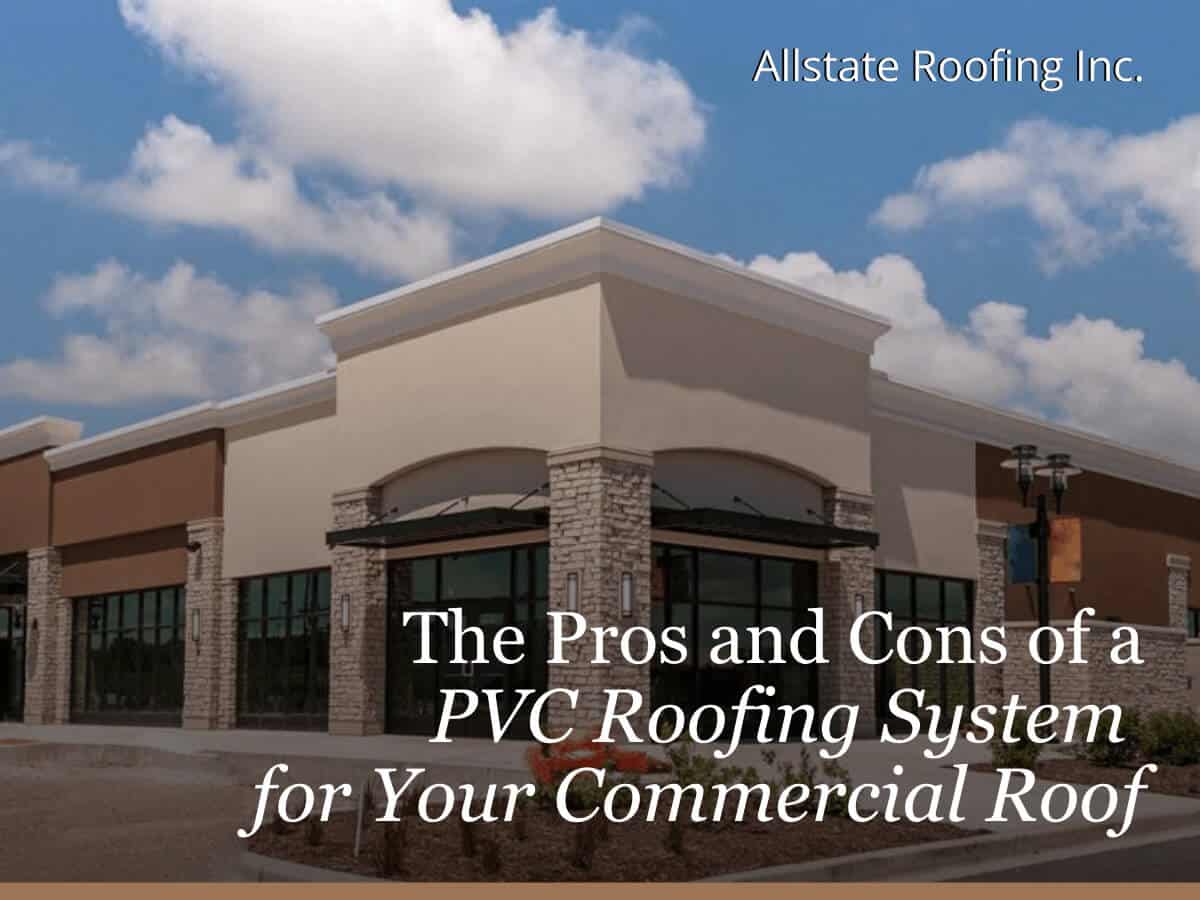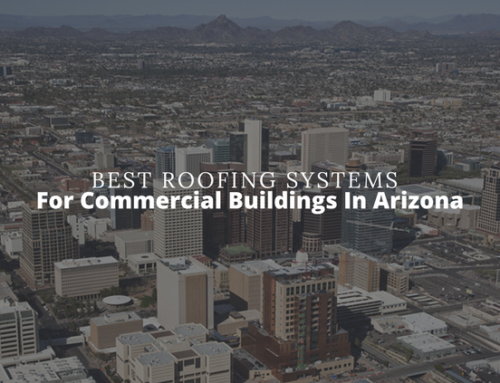The Pros and Cons of a PVC Roofing System for Your Commercial Roof
Most people are very familiar with the typical flat roofs used on commercial warehouse-type buildings. These are PVC roofs, short for Polyvinyl Chloride, and have good reason to be so popular and widely used by Phoenix roofing contractors. Do you know the pros and cons of using a PVC Phoenix commercial roofing system?

But What Is It Exactly?
In order to fully understand the pros and cons of a PVC roof, you must first learn exactly what it is and why it is preferred over Phoenix tile roofing and Phoenix shingle roofing for large commercial buildings. Essentially, PVC roofing systems are made from two separate layers of PVC material, with polyester laid in between the layers for extra reinforcement. Additionally, it is usually manufactured with some additives to enhance flexibility, UV stability, and curing prevention. Acrylic coating is applied on top for extra reflectiveness and to repel dirt and dust.
What are the Benefits?
Many reputable Glendale roofing companies continually praise PVC and use it because of the many advantages it offers to building owners. Any Glendale roofing company near you will agree that the biggest benefits of PVC are its durability, longevity, and fire-retardant properties. Additionally, it is a high-quality type of plastic that is well-known for its strength and affordability and is widely used for roofing systems because it can easily withstand extreme weather elements (including the intense sunlight found throughout Arizona).
How is PVC fire retardant? When compared to other membrane-type roofing systems that continue to burn and melt when exposed to fire, PVC membranes will actually self-extinguish the flames. This is incredibly important because if a roof fire were to occur, the PVC material would prevent the fire from spreading further on itself or into the building beneath. Ultimately, this retardant property would leave more membrane intact and likely prevent the need for a whole Phoenix new roof installation. Rather, smaller repairs could be made much more quickly that would blend in smoothly with the original material left unburned.
Overall, Peoria roof repair needs should be very minimal, as these PVC roofing systems can last upwards of 20 years and require extremely little maintenance throughout their lifetime of service. They are very resistant to moisture and chemical absorption, wind damage, or tears and punctures from daily wear and tear (including birds, bugs, footsteps, pinecones, sticks, and more).
One last benefit of PVC roofing is its energy efficiency. This means your heating and cooling bills will be reduced as you are expending less energy keeping up with temperature fluctuations.
What Are the Disadvantages?
Most contractors will agree that there really are no big downsides to a PVC roofing structure. The only slight negative is PVC has an initially higher cost than typical membrane roofing, but when compared to the unbeatable benefits and longevity of the PVC, it is 100% worth it. Consider the reliability, toughness, and fire-resistant properties of the PVC roofing, and you will see that it is worth the high expense up-front.
If you are facing the prospect of a Phoenix re-roofing project for your commercial building, consider investing in a PVC structure. While their initial cost is more expensive than a typical membrane roof, the benefits you receive will be beyond worth it. The contractors at Allstate Roofing are extremely knowledgeable about the benefits and costs of PVC roofing, and can provide a free estimate of the installation cost for your roof. With over 25 years of experience in the roofing industry, you can trust that Allstate Roofing has your best interest in mind and is committed to serving you with excellence and honesty. Visit us today to learn more about how a PVC roof will work for you!

Allstate Roofing of Arizona
Email: kathy@allstateroofingaz.com
Website: www.allstateroofingaz.com
Peoria Location
30521 N 126th Dr
Peoria, AZ 85383
Office: 602-620-2755
Phoenix Location
2955 W Clarendon Ave
Phoenix, AZ 85017
Office: 602-484-7663
Glendale Location
5019 W Vogel Ave
Glendale, AZ 85302
Office: 602-441-2237

Written by Chad Thomas
“Chad Thomas, born in Arizona and influenced by his licensed roofer father, gained extensive experience in major companies before founding his own licensed roofing business.”

